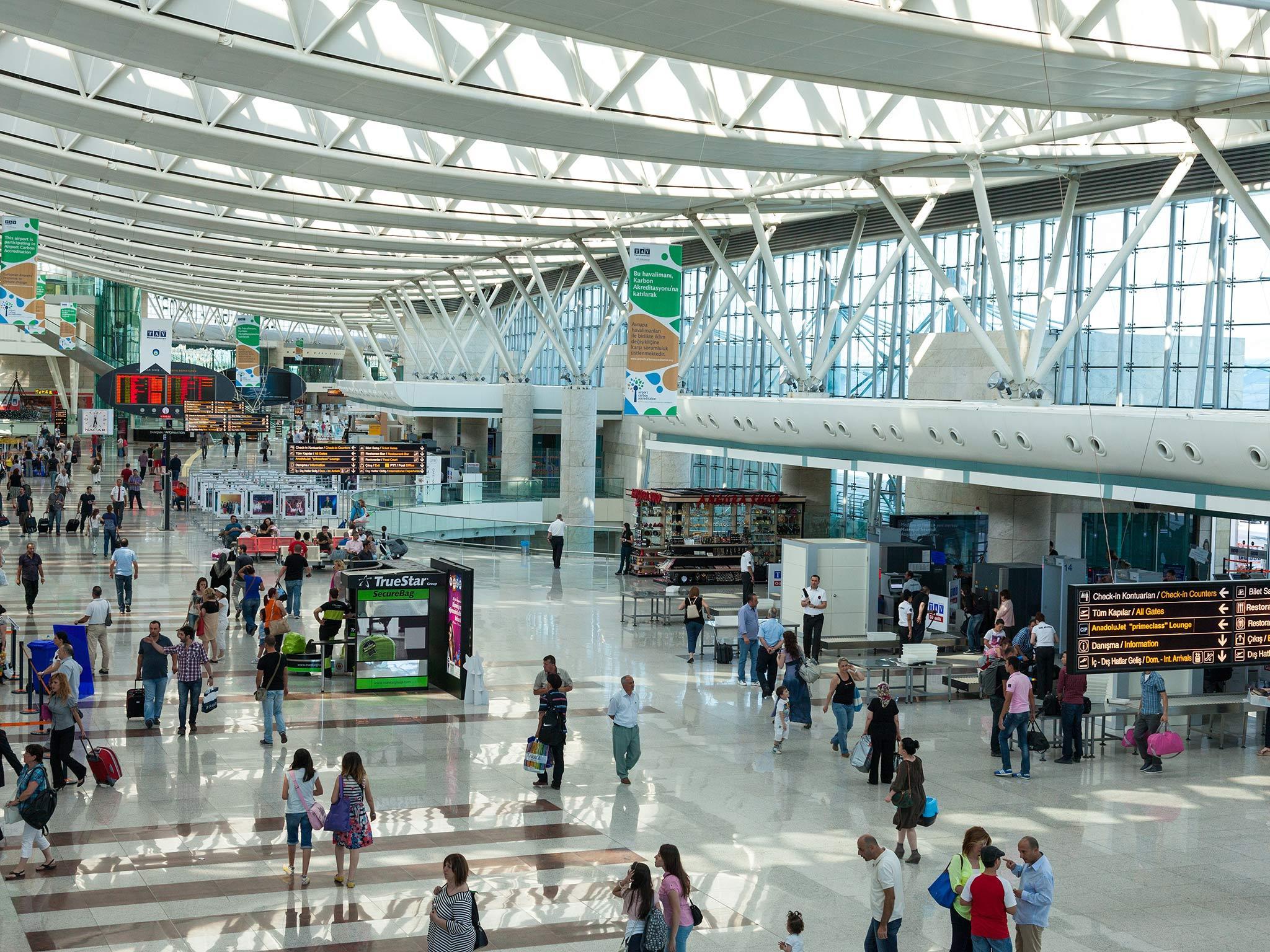Plane talk: Back to the future with the Government’s aviation strategy
Transport Secretary Chris Grayling's ideas about the future of aviation, such as in-town check-ins, feel rather familiar

Here’s what was on the shopping list for Chris Grayling, a key Leave campaigner, a week before the EU referendum: “Taking real steps to limit immigration, to abolish VAT on fuel and tampons, and to end the situation where an international court can tell us who we can and cannot deport.”
More than a year later, Mr Grayling is Transport Secretary and his agenda is accordingly different: “A thriving aviation sector will be central to our future prosperity as we leave the European Union,” he writes in the introduction to what the Department for Transport describes as “a call for evidence on a new aviation strategy”.
Beyond the Horizon: the Future of UK Aviation celebrates a world beyond the European Union. In 2016, it tells us, British airports added new routes to six countries outside the EU: Chile, Costa Rica, Iceland, Iran, Peru, Sri Lanka and the United States. It unaccountably fails to mention that there were direct flights from the UK to all those nations decades ago, and that BA abandoned its link to the Sri Lankan capital, Colombo, in 2015.
“This is your opportunity to shape the future of aviation,” says the document. And it suggests how the coming decades may look.
In-town check-in could be the future, it suggests, adding that Hong Kong provides “a great example of how the consumer journey can be streamlined”.
Two stations on Hong Kong’s Airport Express route allow passengers to check in before travelling out to the airport: “They are issued with a boarding pass and can then either travel bag free straight to the airport or spend an unencumbered day in the city. On arrival at the airport, travellers proceed straight through to security and are reunited with their bags when they reach their destination.”
Surely the idea would work at Heathrow and Gatwick, which both have dedicated rail links from the capital? Well, both of Britain’s leading airports offered the facility for years, but the airlines involved gave it up as an unprofitable sideline.
British European Airways had an entire in-town terminal on the Cromwell Road in west London, where passengers could check in before travelling on special buses direct to the aircraft steps. The introduction of security searches put paid to that luxury.
Later, British Airways offered Gatwick check-in at Victoria station in London. But within weeks of the 9/11 attacks, when every loss-making activity was under scrutiny, it was abandoned.
When the Heathrow Express opened in 1998, it had a check-in area at London Paddington. But hardly anyone used the facility, and the desks were soon replaced by more shops.
With low-cost airlines incentivising passengers to travel with hand luggage only, the prospects for success for in-town check in look even more dismal today than they did two decades ago.
Next, the frequent flyer may not be astonished to learn: “People can experience queuing and inconvenience at security and border control points." The document says: “As airport passport control is most people’s first experience of the UK, the Government wants to consider how it can work with industry to make the arrivals process as smooth as possible.”
This is the same Government, of course, which intends to put up the barriers to the 27 countries in the European Union, as part of “taking back control”.
The freedom we enjoy to fly to anywhere in Europe and to the US and Canada is bestowed by a pan-European treaty. “Alternative arrangements will be required for air services to or from these countries when the UK leaves the EU,” the document correctly observes. “New arrangements are a top priority for the Government.”
As plenty of aviation bosses have said, airlines desperately need certainty about their rights to fly, well ahead of the departure date from the EU.
Mr Grayling’s demand as he campaigned for Brexit was: “A vote to Leave on 23 June is a vote for action, and the Government will need to respond quickly.”
Passengers, airlines and airports would all welcome a quick response. The Department for Transport should be working flat out to overcome the alarming inertia in aviation policy rather than dwelling on unhelpful distractions such as the return of in-town check-in.
Subscribe to Independent Premium to bookmark this article
Want to bookmark your favourite articles and stories to read or reference later? Start your Independent Premium subscription today.

Join our commenting forum
Join thought-provoking conversations, follow other Independent readers and see their replies